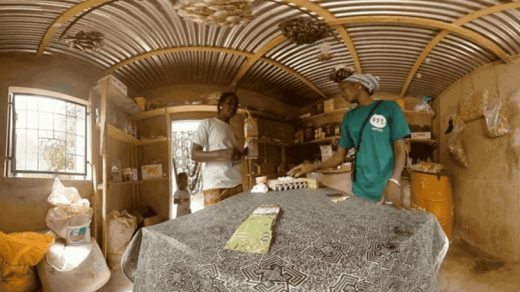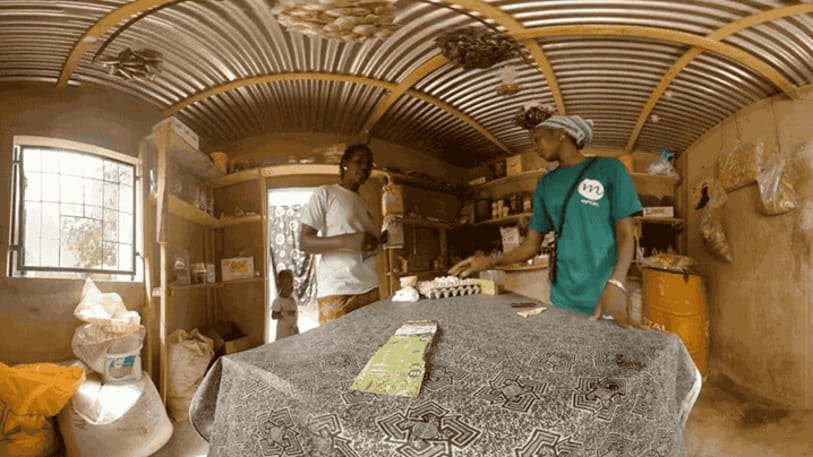Bill Gates Wants To Play Hide And Seek With You
In one scene of Bill Gates’s new virtual reality game of hide and seek, he invites you into a typical African kitchen to find the product that lowers birth defects and helps kids to better in school. (Spoiler alert: It’s a bag of fortified flour.) In another, which takes place in a rudimentary pharmacy, he asks you to find an innovation that can keep vaccines cool for up to six weeks without electricity, ensuring they can be used widely throughout a community. (Spoiler alert #2: It’s a small, cylindrical storage unit called the Arktek Cooler.)
The game appears alongside a post entitled “Hidden in Plain Sight” on Gates’ personal blog, Gates Notes. But it’s much more than a game, of course. This is the benefactor who built chicken coops inside a Manhattan high-rise, released mosquitoes on an unsuspecting audience, and drank purified poop water—all to make some larger point more memorable.
The basic goal may be to spot some life-improving intervention in its natural habitat, showing how incredible breakthroughs are becoming more common every day within the developing world. But the true purpose is to telegraph something that even deep-pocketed philanthropists are bad at bankrolling: hope. As Gates laid out through some math in his annual letter earlier this year, the charitable world is in may ways winning its fight against inequality, even if those leading the charge are bad about sharing success with the masses. As a related problem, there’s often not really a line item in their grants to do so this.
You don’t have to be the billionaire co-founder of Microsoft to realize that keeping people energized about power of charity to make change is especially important right now: that’s what creates the political pressure to ensure that government spending on similar cause work stays solid, or at least convinces more social entrepreneurs of the equity and fulfillment in their double bottom lines.
“You can get fairly cynical about the whole thing if you think we’re just standing in place,” he told Fast Company earlier this year. To that end, this game serves as an obvious reminder: “If you don’t expect to see change, you won’t look for it,” he writes in the accompanying post. Meanwhile, there’s already been plenty of successes worth celebrating, which can hopefully keep other donors, entrepreneurs, activists, and leaders excited for the future.
(77)














